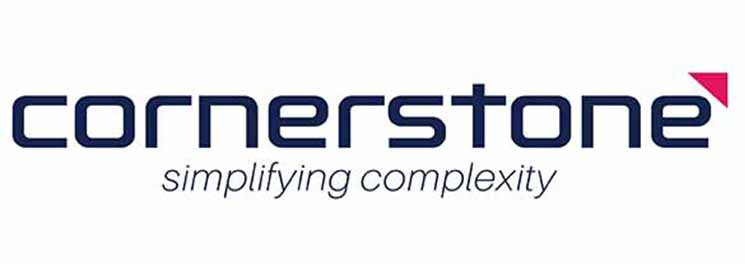Warm and inviting wine bar, Cumulus Up was the perfect setting for Cornerstone to host a breakfast event with our presenting partner Oliver Wight and business partner Anaplan. Not that we had wine at breakfast, of course. However, the welcoming vibe of the venue was perfect for our audience to hear about the latest use cases in business planning from our expert panellists.
Guests at Cornerstone’s “Breakfast Panel with Oliver Wight” were Category Managers, Senior Managers and Directors, and other prominent FMCG & Supply Chain & Logistics professionals.
Over a breakfast, which included sharing platters filled with homemade crumpets, smoked salmon croque monsieurs, grilled peaches and freshly baked country loaves, Virgin Mary mocktails, and fresh barista coffee, our guests were treated to an informative presentation from Mike Reed (Managing Partner, Oliver Wight).
At the breakfast panel on 19 February, delegates learned about the evolution from Sales and Operations Planning (S&OP) to Integrated Business Planning (IBP) which Oliver Wight benchmarked way back in the early 80s. Just like shoulder-pads and big hair of the 80s, S&OP has a few shortcomings in today’s business environment. It is most commonly applied for demand and supply balancing, and while it includes the capability for financial evaluation, it doesn’t fully integrate financial planning for a business.
We find that many companies set the bar too low, looking only at the short-term numbers as part of their supply chain process, rather than a true integration of strategic planning of the whole business and are often planning in silos. Unfortunately, many of those same companies think they’re doing a great job, but S&OP has evolved over many years into today’s best practice – IBP.
Mike took us through why Integrated Business Planning is so important, and how a single integrated business response leads to greater efficiency, lower costs, an enhanced portfolio, satisfied customers and engaged and motivated teams (with a breakdown of silos and other workplace nasties). Critically, IBP is about having one goal and one agenda. Using IBP, leadership is aligned on business strategy and objectives, and teams and individuals all take accountability for the planning process.
Following on from the evolution of IBP, guests were treated to an exciting and interactive panel discussion featuring Mondelez Sales Director Toby Smith and former Seqirus Supply Chain and Planning Lead Brent Gorham. Toby & Brent’s Q&A session with the audience was one of the highlights of the morning, with delegates fully engaged and asking numerous questions such as: ‘How did you align the business to one set of numbers? How can companies use demand or supply excellence to gain a competitive advantage in the market? How can key performance indicators be used to identify operational gaps and drive effective change? How do you effectively manage the product lifecycle? How can you engage and empower functions in the IBP process? Do you measure the maturity of the IBP process? How can companies transition from a highly reactive short term planning horizon which creates non value added activities?
From the conversations around the room, the balancing of people, process and tools to achieve operational excellence, the business transformation to connected cross functional planning environments and understanding what ‘good’, ‘better’, ‘best’ looks like which business operations, proved to be common themes from the delegates.
Steve Bows (Anaplan Practice Lead, Cornerstone) then took guests through a Connected Planning workshop, enabling them to understand first-hand how people, processes and technology could enable their business. Undertaking a simple traffic light sticker exercise, delegates rated planning processes in their own businesses. They labelled those that had excellent strategy and planning, and harnessed technology well (green sticker); through to planning processes that are poorly defined and structured and need much better definition before technology can make any difference to business efficiency (red sticker).
Steve highlighted some surprising results and common pain points for most businesses. These included long-range planning or the ability to have rolling forecasts that could effectively predict future outcomes and align to business strategy, or respond to the changing market conditions quickly. Other hot topics were supply and demand planning to drive better cross-functional collaboration – to sense and drive demand instead of merely reacting to it.
Today businesses require a common sense, consistent and disciplined approach which ensures accountability and leads to a stronger bottom line. IBP requires a formal approach. Using processes developed by Oliver Wight, with end-to-end integrated planning, the IBP process keeps an organisation on a single, agreed agenda for success.
IBP has moved from a comparatively two-dimensional S&OP process to a very comprehensive decision-making process that closes the gap between predicted business performance and the strategic goals in the business and strategic plan, by encompassing all components of the business.
The breakfast forum wrapped up with a final Q&A with Mike & Steve before closing at 11.30 am.
Contact us here for a copy of the event presentation.




